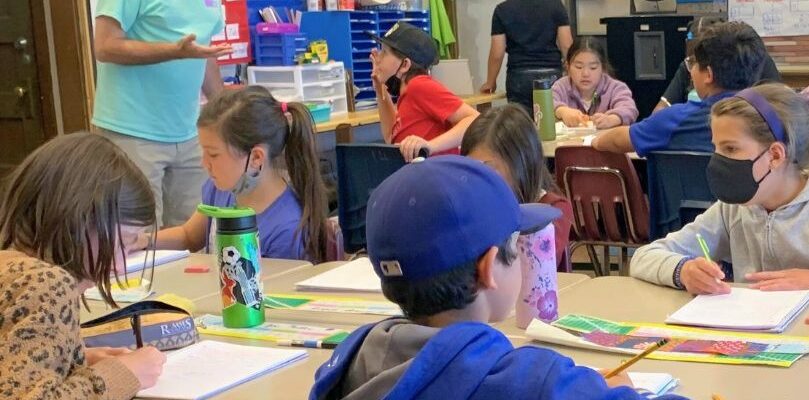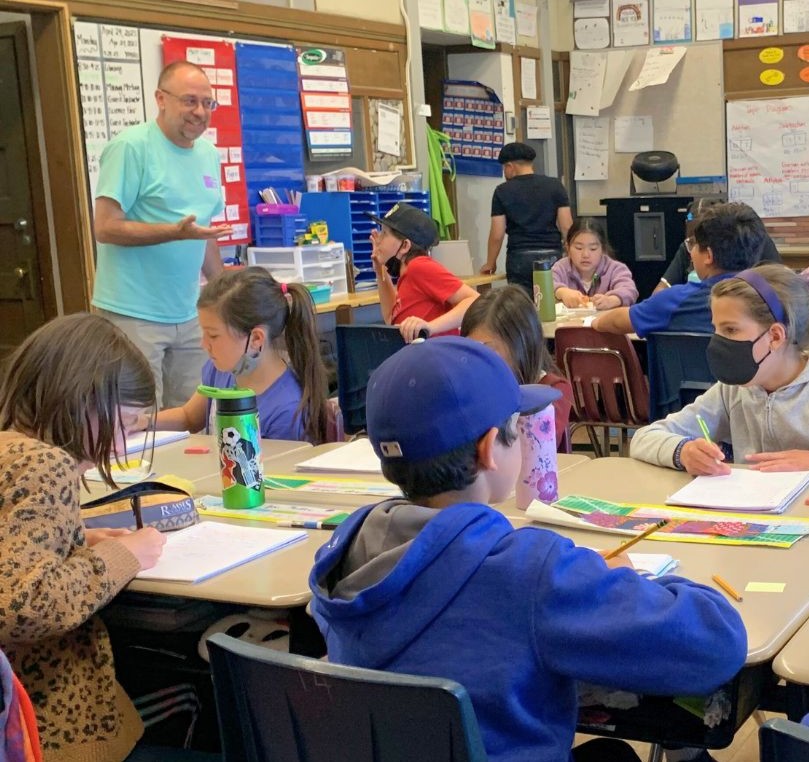
Climate Literacy NOW!: Improving Climate Education from Tots to Teens

Fourth graders in a dozen classrooms across California are exploring the relationship between climate change, electric energy, and power outages. Stepping into darkened classrooms to experience a “mock power outage”, the students are reading stories about impacts in the community, and becoming experts on the major sources of electricity. They are figuring out strategies to help their communities become more energy resilient.
“The students have been so engrossed in the experience that I’ve extended the time for the lessons because the students have so much to talk about! They love the opportunity to become experts and teach one another what they are learning,” shared one teacher who is field testing the lessons.
Other CRS teachers are collaborating in Oakland on the multi-year OTACA teacher collaboration to design and implement meaningful student climate action projects. Many of these teachers will attend summer institutes too. We’re planning one focused on extreme precipitation, and another on clean air – with a social justice lens.
All of these efforts are helping CRS teachers get a jump on new state requirements that will go into effect in the 2024-25 school year. Starting in 1st grade, science will need to include teaching about climate change causes and impacts, and exploring strategies for adaptation and mitigation. Children are discovering ways that they too can take action and make a difference!
We also collaborated with district climate literacy teams from Berkeley and Fremont, and partners like StopWaste, to put on a Climate Literacy Leadership Exchange in March at Chabot Space and Science. Nearly 100 teacher leaders, district administrators, and partners gathered to learn about effective strategies and resources for teaching about climate change and environmental justice every grade, from Kindergarten through high school.
“Students feel personal connections in their daily lives to climate change topics,” explains CRS Climate & Environmental Education coordinator Eric Havel. “They are extremely motivated to learn and talk about climate change and justice, and to take actions that make a difference. We are inspired by what teachers and students are doing.”